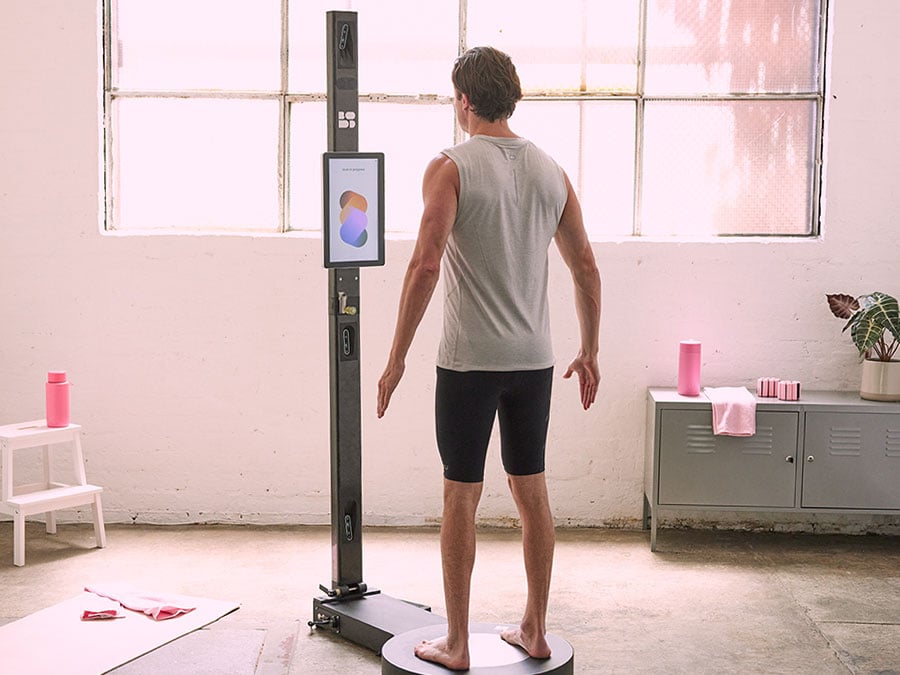Step onto a 3D Body Scanner: The Future of Personalized Health and Fitness
Introduction to Body Scanning Technology
Stepping onto a 3D body scanner introduces individuals to a futuristic yet increasingly accessible technology designed to map out the human body in exquisite detail. This technology uses various methods, including bioelectrical impedance analysis and 3D body mapping, to gather data on body composition, muscle mass, fat percentage, and even skeletal structure.
By stepping onto a body scanner, people can obtain precise, actionable insights into their health and fitness levels, tailored specifically to their unique body metrics.
The Role of 3D Body Scanners in Personalized Health
Personalized health and fitness plans are the future, and body scanners are the key to unlocking this future. The level of detail and accuracy provided by these scans allows for the creation of highly customized health and fitness programs.
Unlike traditional assessments, which often rely on generalized data and subjective measures, a 3D body scanner provides objective, quantifiable data. This data forms the basis for personalized dietary recommendations, workout plans, and health strategies designed to meet individual goals and needs.
A Deep Dive into Your Health Metrics
3D body scanners can go beyond surface-level metrics, offering insights into visceral fat levels, bone density, and metabolic rates. Such comprehensive data can reveal underlying health issues, assess risk factors for chronic diseases, and provide a baseline for monitoring health progress over time.
This way, people are not merely undergoing a routine health assessment; they are taking a proactive step towards self-awareness and empowerment. The wealth of data provided by a single scan equips individuals with the knowledge to make informed decisions about their health and lifestyle. This empowerment through information is a critical component in shifting from reactive to preventive health care, where the focus is on maintaining wellness rather than treating illness.
Enhancing Fitness Regimes with Precision
The detailed body composition analysis helps in identifying specific areas of the body that need focus, enabling the design of targeted workout programs. This precision approach ensures that each exercise and nutrition plan is optimized for efficiency, reducing the risk of injury and accelerating progress towards fitness goals.
Tailored Nutrition for Optimal Health
Nutrition plays a critical role in achieving fitness and health objectives. With the data obtained from a body scan, nutritionists can devise meal plans that cater to the individual's specific nutritional needs, considering their metabolic rate, body type, and health goals. This level of customization ensures that the body receives the right nutrients in the right amounts, supporting overall health and fitness progress.
The Impact of Body Scanners on Health and Fitness Industries
The integration of body scanning technology into health and fitness sectors is transforming these industries. Gyms, health clubs, and wellness centers are increasingly offering body scanning services, providing members with a holistic view of their health and a clear path to achieving their fitness goals. Similarly, healthcare providers are utilizing body scanners to offer more personalized care, making informed decisions based on precise body composition data.
Bridging the Gap in Preventive Health Care
Preventive health care has long been heralded as the cornerstone of a sustainable health system, yet practical tools for implementation at the individual level have been lacking. The advent of body scanning technology fills this gap, offering a tangible, accessible means for individuals to understand and monitor their health metrics over time. By integrating regular body scans into preventive health routines, individuals can detect potential health issues early, track progress towards health goals, and adjust their health and fitness strategies in real time.
Overcoming the Challenges
While the benefits of a body scanner are clear, there are challenges to widespread adoption. These include the high cost of scanning technology, privacy concerns related to personal health data, and the need for user education on interpreting and acting on scan results. Addressing these challenges requires concerted efforts from technology providers, health professionals, and regulatory bodies to ensure that body scanning becomes a safe, accessible, and integral part of personalized health and fitness.
Future Directions: Beyond the Scanner
As body scanning technology evolves, its applications in health and fitness are set to expand. Future developments may include more portable and affordable scanners, integration with virtual and augmented reality for immersive health experiences, and the use of AI to predict health trajectories based on scan data. These advancements will further democratize access to personalized health insights, making 3D body scanning an invitation to a healthier, more informed future.
The journey of personalized health and fitness is becoming more precise and informed, thanks to body scanning technology. As we embrace 3D body scanners, we move into a new realm of possibilities for understanding and improving our health. This technology not only offers a snapshot of our current health status but also empowers us to make informed decisions that shape our future well-being.
Conclusion: Embracing the Future with Body Scanning Technology
Stepping onto 3D body scanners can be a gateway to a future where personalized health and fitness are not just aspirations but realities.
By embracing body scanning technology, individuals can unlock a new level of personal health insights, enabling them to tailor their health and fitness regimes with unprecedented precision. As we look forward to the continued evolution of this technology, the potential for transforming personal health and fitness is boundless.
